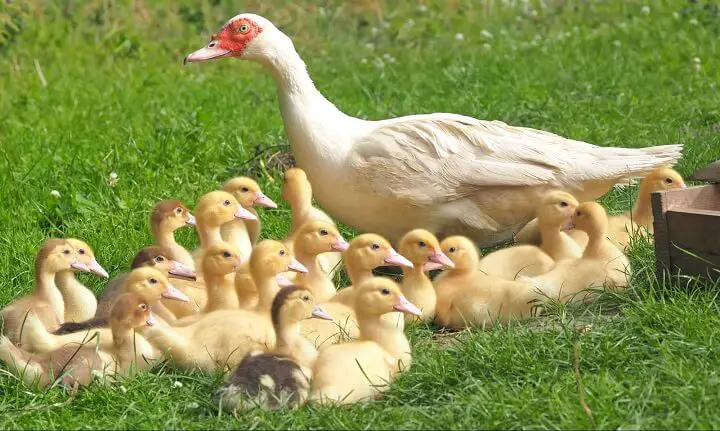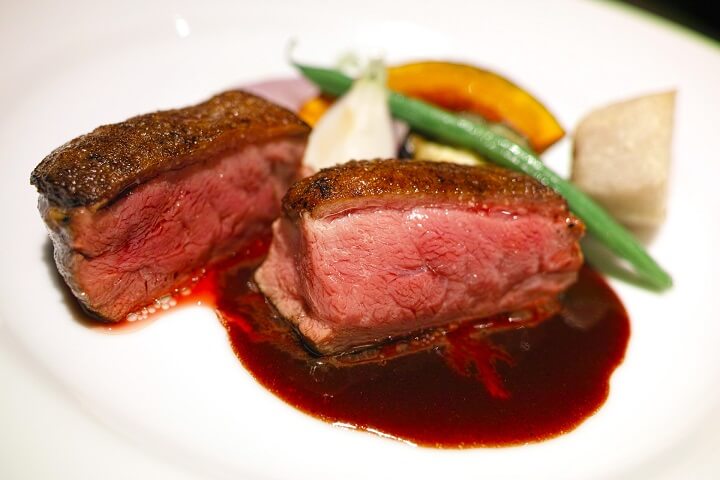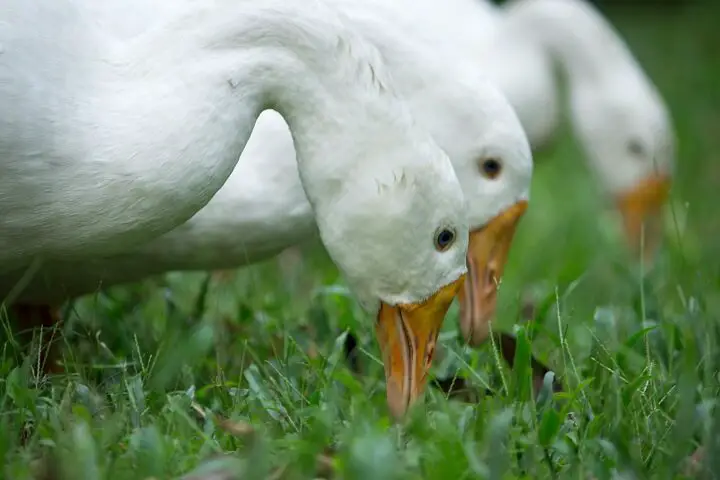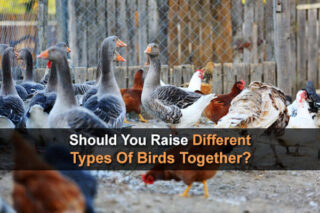Estimated reading time: 7 minutes
Chickens are often the go-to animal for many homesteaders who are building up their property. With their recent boost in popularity, it is easy to find chicken supplies and resources.
However, long time homesteaders often have ducks as well and swear that they are better to raise than chickens. When considering which kind of bird to add to the homestead, you may find that ducks are a better fit. Consider these tips on why ducks are worth getting instead of chickens.
Want to save this post for later? Click Here to Pin It On Pinterest!
Ducks Are Great Egg Layers
It is often surprising how many people don’t know that duck eggs are edible. Duck eggs are usually much larger than chicken eggs and offer a richer taste. The white of the eggs has more protein and less water than chicken eggs, making them great for baking. The extra protein helps add extra height when whipping, making for a lighter cake consistency.
It is also important to note that you can sell a dozen duck eggs for more than you could chicken eggs. This is a great tip for those homesteaders who normally sell at local farmer’s markets or are close to a larger city with customers who know the value of duck eggs.
There are different kinds of ducks to choose from as well. Some ducks are great at laying eggs while others are meant more for meat. Choosing the right kind of duck for your homestead requires some research to make sure that the duck is a good fit.
Ducks Keep a Tight Schedule
While many assume that chickens only lay eggs in the early morning, they usually lay all throughout the day. Some hens like the mornings while others lay midday or even early evening. This requires constant checking of the nest boxes and can also lead to chickens and roosters eating their eggs if they are bored or want an extra snack.
Ducks, on the other hand, almost always lay their eggs before 8 am. Since you can collect all of the eggs at once, you'll spend less time checking the nest boxes and warding off predators. Thanks to their tight egg-laying schedule, ducks help save you time on the homestead when you have many other jobs to do.

Ducks Don’t Mind the Weather
Water and ducks go hand in hand on the homestead. This is why ducks are a better bird to raise if you live in an especially wet climate. While chickens hate being wet and will often use all of their energy to stay dry instead of laying eggs, ducks relish in the rainy conditions and have no problem laying during the worst of weather conditions.
Another reason to consider raising ducks is their ability to adapt to both hot and cold weather conditions. Ducks are naturally insulated from the cold and can easily survive in colder climates that see snow and ice. Keeping their water source from freezing is a different story though. In the summer, ducks can keep themselves cool with frequent swims to escape the heat.
Ducks Enjoy Each Other
Pecking order is a real thing when it comes to a flock of chickens. There are alpha males and alpha females, and everyone else better fall in line. If you’ve ever watched a flock of chickens, you’ve probably seen them fighting over something or pecking each other for no good reason at all.
Less dominant hens in a flock can get picked on and often have feathers pulled out by those higher up in the pecking order. Adding a new chicken to the group is very difficult as the alpha chickens see it as a direct threat to their thrones.
Ducks are easier to assimilate together, making them an easier bird to have on the homestead. While they may take a day or two to get accustomed to each other, a new addition to the duck area often is accepted in a short amount of time.
There is less of a pecking order than chickens, although you may still see an alpha male or female nip at others. There is definitely less damage from others in a flock of ducks than in a flock of chickens.
Ducks Are Easier to Herd
If you’ve ever tried to herd a chicken, you know what a nightmare it can be. While chickens are known for their ability to scatter and free-range without another hen around, ducks are quite the opposite. Ducks are friendly animals that enjoy spending time in a tight group.
This natural behavior makes it easy to herd ducks together on the homestead. You’ll rarely have a duck that flies the coop by itself. When you need to close the ducks in at night or corral them to another location, their natural herding instinct works in your favor.

Duck Meat Is Extra Nutritious
While chicken is often a staple on dinner tables, duck meat is usually reserved for fancy dinners. However, more and more Americans have learned that duck is unique in being a lean protein that is also red meat.
This means that duck meat is comparable to turkey or chicken in its fat content but has higher iron levels than other poultry. Ducks are naturally fatty to keep them warm in the water, and the flavor of rendered duck fat is a great oil substitute.

Ducks Eat More Pests
While chickens often feed on grain, ducks enjoy adding insects and pests to their daily diet. They aren’t picky about the bugs they eat and are a great natural pest control for the homestead.
Ducks often enjoy worms, slugs, spiders, flies, grubs, crickets, and grasshoppers. They'll even take down a small snake or mouse if they are quick enough to catch one. While chickens do eat pests, they are a bit more selective in their added protein than ducks.
Ducks Stay Healthier
Due to their constant love of the water, ducks usually have fewer health issues than chickens. The mites and critters that can easily attach themselves to chickens don’t survive in the wet living conditions of the duck area. They have strong immune systems, and ducklings often have a better chance of survival than chicks.
Ducks Are Quieter
While many homesteaders aren’t that picky about the noise level on their property, there are instances when a quieter bird is helpful. If you’ve raised chickens, you may know that roosters like to crow in the morning, noon, and night. Their crow can be heard a long way off, and you’ll often find that a crowing rooster can get on your nerves pretty quickly.
Ducks are quieter in their chatter and make much less noise. This is a good tip for those homesteaders who live within city limits or near neighbors that may be less than excited about your property.
There are many reasons to consider adding ducks to the homestead. They are easy to herd, maintain, and lay eggs on a very consistent basis. While chickens do have their place on the property, it may be a good idea to start with ducks if you are new to raising birds.
Like this post? Don't Forget to Pin It On Pinterest!












GREAT article very informative. A lot of information I never knew. Keep up the good work.
THANK-YOU
Don’t ducks require a certain square feet of pond per duck to be happy/healthy? Do you have handy what that might be? I’ve got a friend who keeps a few ducks and uses a kiddie wading pool for their water to swim in. They “cr@p it up” pretty quickly, such that he has to change the water pretty regularly. Chaning water in a small pond isn’t practical, so I was wondering how big of a pond someone ought to have available to their ducks.